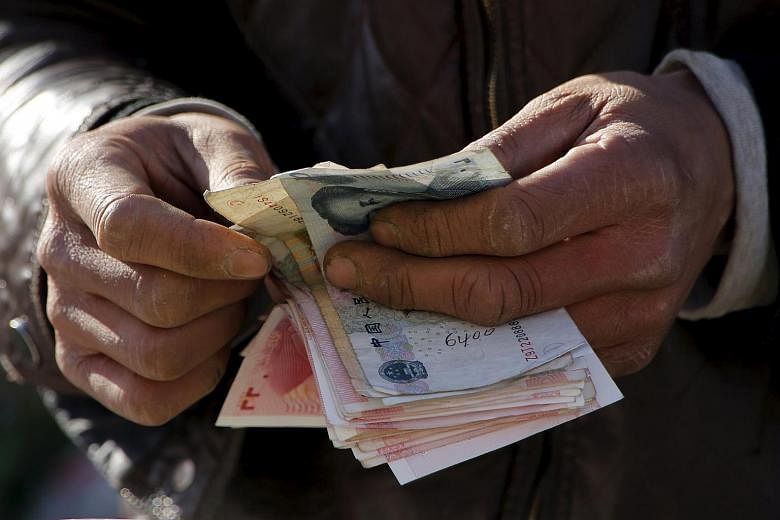BEIJING • It's been almost 12 months since China's equity market embarked on a precipitous decline that would erase US$5 trillion (S$6.9 trillion) of value, and the nation's stocks have rarely been this subdued.
For the past two weeks, the Shanghai Composite Index has not strayed more than 51 points from the 2,800 level. Volatility on the gauge is the lowest since December 2014, while turnover has crumbled to levels more than 80 per cent below last year's peak.
Margin debt, which fuelled last year's bull market, has dropped by more than 1.4 trillion yuan (S$294 billion) on China's equity exchanges as investor interest dwindled.
The muted trading masks convulsions in the nation's financial markets as an economic slowdown deepens and the authorities step up measures to prevent capital outflows.
Rising corporate defaults are prompting concern over the size of China's debt burden, commodity prices are plunging as another speculative mania ends, while the yuan is heading for its steepest losses this year.
While state support for the stock market is limiting declines in the benchmark gauge, RS Investment Management says expensive valuations mean there is little incentive to chase gains.
"You still have an artificially high price to earnings multiple, and that needs to come down as the A-share market adjusts to fundamentals," said Mr Tony Chu, a money manager at RS Investment Management. "Pain is likely going to continue."
Since May 9, the Shanghai Composite has closed between 2,806.91 and 2,850.86, with the average daily move being 0.4 per cent. That compares with January, when swings of more than 3 per cent were common.
A gauge of 30-day volatility has fallen to 17, after peaking at 65 last year.
The drop in turnover has been even more dramatic. The value of shares traded on the Shanghai exchange fell to 118 billion yuan last Wednesday, the lowest level for a full day since October 2014, and down from a record 1.3 trillion yuan in June.
Economic stress is growing. At least 10 issuers have reneged on onshore debt obligations this year, spurring renewed concerns about corporate defaults.
The central bank on Wednesday weakened its yuan fixing to the lowest in five years as a stronger dollar threatened to end the stability that has prevailed in the country's currency market for much of the year.
The Shanghai Composite closed 0.3 per cent higher at 2,822.44 yesterday after falling as much as 1.2 per cent to 2,780.76. "It's going to be in this range for a bit longer," said Ms Pauline Dan, head of Greater China equities at Pictet Asset Management. "There is really no catalyst for it to go up."
BLOOMBERG

